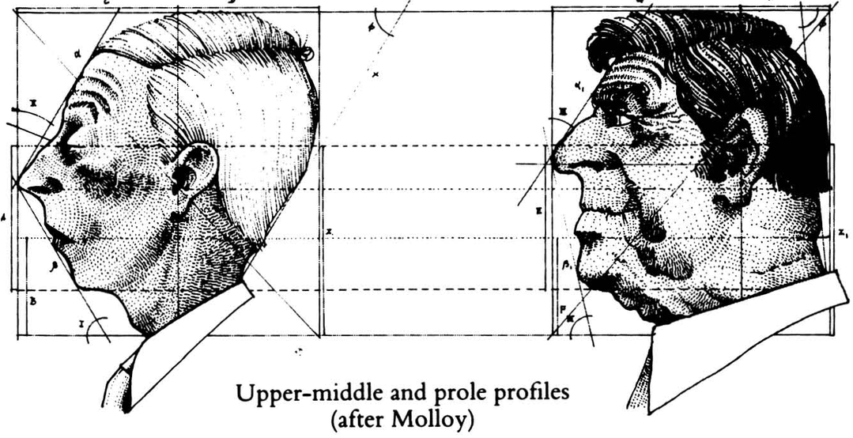World War Two
Published 25 Feb 2021Franklin D. Roosevelt signs an order to intern all Japanese-American citizens on the West Coast of the United States, while the Italians open up new concentration camps to deal with their ethnic enemies in the Balkans. At the same time, a large group of Jews attempts to escape Europe by boat, with disastrous consequences.
Join us on Patreon: https://www.patreon.com/TimeGhostHistory
Or join The TimeGhost Army directly at: https://timeghost.tvFollow WW2 day by day on Instagram @ww2_day_by_day – https://www.instagram.com/ww2_day_by_day
Between 2 Wars: https://www.youtube.com/playlist?list…
Source list: http://bit.ly/WW2sourcesHosted by: Spartacus Olsson
Written by: Joram Appel and Spartacus Olsson
Director: Astrid Deinhard
Producers: Astrid Deinhard and Spartacus Olsson
Executive Producers: Astrid Deinhard, Indy Neidell, Spartacus Olsson, Bodo Rittenauer
Creative Producer: Maria Kyhle
Post-Production Director: Wieke Kapteijns
Research by: Joram Appel
Edited by: Miki Cackowski
Sound design: Marek Kamiński
Map animations: Eastory (https://www.youtube.com/c/eastory), Miki CackowskiColorizations by:
Norman Stewart – https://oldtimesincolor.blogspot.com/
Mikołaj UchmanSources:
Yad Vashem 143BO2, 5344/2, 6263, 9744/1, 15000/14187511, 15000/14258277, 15000/14088811
Martyr’s path to freedom (Mučeniška pot k svobodi), Ljubljana, 1946
USHMM
View of the Struma in the Istanbul harbor, February 1942, courtesy of USHMM, David Stoliar
From the Noun Project: Ship by kareemovic1000Soundtracks from the Epidemic Sound:
Cobby Costa – “Flight Path”
Fabien Tell – “Break Free”
Philip Ayers – “It’s Not a Game”
Fabien Tell – “Last Point of Safe Return”
Fabien Tell – “Remembrance”
Rannar Sillard – “Split Decision”
Skrya – “First Responders”Archive by Screenocean/Reuters https://www.screenocean.com.
A TimeGhost chronological documentary produced by OnLion Entertainment GmbH.
February 26, 2021
U.S. Detention, Nazi Deportation, and Death in the East – WAH 029 – February 1942, Pt. 2
Waymarkers of the American caste system
Scott Alexander reviews Paul Fussell’s Class: A Guide Through The American Status System, and finds Fussell has helpfully delineated how an outsider can guess someone’s class (or caste, as Fussell would prefer) … at least how that outsider could do so in 1983:
The upper class is old money. The people you think of as rich and famous — tech billionaires, celebrities, whatever — aren’t upper class. However privileged they started off, they still had to put in at least a smidgeon of work to get their money, which disqualifies them. Real uppers inherit. Even famous people who come from old money usually aren’t central examples of upper class; the real upper class has no need to seek fame. They mostly just throw parties — but not interesting parties, because that would imply they have something to prove, which they don’t. They live in mansions — but not awesome mansions they designed themselves with some kind of amazing gaming room or something, because that would imply they have something to prove, which they don’t. They live in meticulously boring mansions and throw meticulously boring parties. They have the best and classiest versions of everything, but it’s a faux pas to compliment any of it, because that would imply that they were the sort of people who might potentially not have had the best and classiest version of that thing. They fill their houses with Picassos and exquisite antique furniture, and none of them ever express the slightest bit of satisfaction or praise about any of it. You have never heard of any of these people, although you might recognize the last name they share with a famous ancestor (Rockefeller, Ford, etc).
The middle classes are salaried professionals, starting with the upper-middle class. Jeff Bezos, for all his billions, is only upper-middle-class at best. So are many of the other people you think of as rich and famous and successful. The upper-middle-class likes New England, Old England, yachts, education, good grammar, yachts, chastity, androgyny, the classics, the humanities, and did I mention yachts?
The middle class is marked by status anxiety. The working class knows where they stand and are content. The upper-middle class has made it; they’re fine. And the upper class doesn’t worry about status because that would imply they have something to prove, which they don’t. But the middle class is terrified. These are the people with corporate jobs who say things like “I’ve got to make a good impression at the meeting Tuesday because my boss’ boss will be there and that might determine whether I get the promotion I’m going for”. The same attitude carries into the rest of their lives; their yards and houses are maintained with a sort of “someone who could change my status might be watching, better make a good impression”. They desperately avoid all potentially controversial opinions — what if the boss disagrees and doesn’t promote them? What if the neighbors disagree and they don’t get invited to parties? They are the most likely to be snobbish and overuse big words, the most obsessed with enforcing norms of virtuous behavior, and the least interested in privacy — asserting any claim to privacy would imply they have something to hide. Their Official Class Emotions are earnestness and optimism; they are the people who patronize musicals like Annie and Man of La Mancha where people sing saccharine songs about hopes and dreams and striving, and the people who buy inspirational posters featuring quotes about perseverance underneath pictures of clouds or something.
Proles do wage labor. High proles are skilled craftspeople like plumbers. Medium and low proles are more typical factory workers. They have a certain kind of freedom, in that they don’t have status anxiety and do what they want. But they’re also kind of sheep. They really like mass culture — the more branded, the better. These are people who drink Coca-Cola (and feel good about themselves for doing so), visit Disneyland (and accept its mystique at face value), and go on Royal Caribbean cruises. When they hear an ad say a product is good, they think of it as a strong point in favor of buying the product. They feel completely comfortable expressing their opinions, but their opinions tend to be things like “Jesus is Lord!”, “USA is number one!”, “McDonalds is so great!”, and “Go $LOCAL_SPORTS_TEAM!”. They are weirdly obsessed with cowboys (Fussell says cowboys represent the idea that poorer people are freer and more authentic than rich office-worker types, plus the West is the prole capital of the USA) and with unicorns (Fussell: “I’ve spent six months trying to find out exactly why, and I’m finally stumped”). When they have unique quirks, they tend to be things like “collecting lots of Disney memorabilia” or “going powerboating slightly more often than the other proles do”. There’s also a sort of desperate prole desire to be noticed and individuated, which takes the form of lots of “Personalized X” or “Y with your name on it”, and also with making a lot of noise (see: powerboating). Fussell describes the most perfectly prole piece of decor as “a blue flameproof hearthrug with your family name in Gothic letters beneath seven spaced gold stars and above a golden eagle in Federal style”.
It’s impossible to tell when Fussell is serious vs. joking. The section on the physiognomy of different classes has to be a joke, right? But then how did he come up with the Virgin vs. Chad meme in 1983? Also, why does my brain keep telling me these are John McCain and Donald Trump?
A friend urges me to think of these not as “rich/successful people” vs. “poor/unsuccessful people”, but as three different ladders on which one can rise or fall. The most successful proles are lumber barons or pro athletes or reality TV stars. These people are much richer and more powerful than, say, a schoolteacher, but they’re still proles, and the schoolteacher is still middle class. Likewise, a very successful middle class person might become a professor or a Senator or Jeff Bezos, but this doesn’t make them even a bit upper class.
(I’m not sure it’s possible to be a more or less successful upper class person; being successful would imply having something to prove, which they don’t).
Germany’s First Smokeless Carbines: the Kar 88 and Gewehr 91
Forgotten Weapons
Published 27 May 2018http://www.forgottenweapons.com/germa…
http://www.patreon.com/ForgottenWeapons
Cool Forgotten Weapons merch! http://shop.bbtv.com/collections/forg…
With the development of the smokeless Gewehr 88 “Commission Rifle”, the German Army finally made a serious effort to bring their cavalry units up to a modern standard. There had never been a carbine variant of the Mauser 71/84 produced, and even by the late 1880s many German cavalrymen were still carrying single shot Mauser 71 carbines — or worse, converted captured Chassepots from the Franco-Prussian War. While the Karabiner 88 wasn’t in production quite as quickly as they would have liked, guns were coming off the factory line in quantity by the summer of 1890. The factories tasked with this production were not actually the major state arsenals, but rather two private companies in Suhl — CG Haenel and VC Schilling (although the Erfurt Arsenal would step in in 1891 to make a batch of 25,000 carbines).
The Kar 88 was remarkable light and handy, and designed for use in a cavalry scabbard, meaning that it had a nice slick profile. This became a problem when the Army wanted to issue the carbines for foot artillery crews as well, because it gave them no way to stack the rifles while tending to their artillery pieces. The result was the Gewehr 91, which was identical to the Kar 88 in every way except for the addition of a stacking rod under the muzzle.
Both the Kar 88 and Get 91 were already being slowly taken out of service before World War One, as the new Mauser 98 pattern carbines introduced in 1909 or 1910 were taking their place. This would change with the outbreak of war, of course, and every one of the 88 pattern carbines in German inventory would be issued out during the Great War. Their size and weight made them ideal for the troops who needed a personal weapon but were unlikely to actually have to fight with it (artillery crews, cyclists, supply drivers, balloon crews, etc). After the war, they all disappeared from military service, though. The arms limitations of the Treaty of Versailles gave Germany no reason to keep obsolescent arms, and they were discarded in favor of keeping Mauser 98 pattern rifles and carbines.
Contact:
Forgotten Weapons
6281 N Oracle #36270
Tucson, AZ 85704
QotD: “What have the Romans ever done for us?”
REG: They’ve bled us white, the bastards. They’ve taken everything we had, and not just from us, from our fathers, and from our fathers’ fathers.
LORETTA: And from our fathers’ fathers’ fathers.
REG: Yeah.
LORETTA: And from our fathers’ fathers’ fathers’ fathers.
REG: Yeah. All right, Stan. Don’t labour the point. And what have they ever given us in return?!
XERXES: The aqueduct?
REG: What?
XERXES: The aqueduct.
REG: Oh. Yeah, yeah. They did give us that. Uh, that’s true. Yeah.
COMMANDO #3: And the sanitation.
LORETTA: Oh, yeah, the sanitation, Reg. Remember what the city used to be like?
REG: Yeah. All right. I’ll grant you the aqueduct and the sanitation are two things that the Romans have done.
MATTHIAS: And the roads.
REG: Well, yeah. Obviously the roads. I mean, the roads go without saying, don’t they? But apart from the sanitation, the aqueduct, and the roads–
COMMANDO: Irrigation.
XERXES: Medicine.
COMMANDOS: Huh? Heh? Huh…
COMMANDO #2: Education.
COMMANDOS: Ohh…
REG: Yeah, yeah. All right. Fair enough.
COMMANDO #1: And the wine.
COMMANDOS: Oh, yes. Yeah…
FRANCIS: Yeah. Yeah, that’s something we’d really miss, Reg, if the Romans left. Huh.
COMMANDO: Public baths.
LORETTA: And it’s safe to walk in the streets at night now, Reg.
FRANCIS: Yeah, they certainly know how to keep order. Let’s face it. They’re the only ones who could in a place like this.
COMMANDOS: Hehh, heh. Heh heh heh heh heh heh heh.
REG: All right, but apart from the sanitation, the medicine, education, wine, public order, irrigation, roads, a fresh water system, and public health, what have the Romans ever done for us?
XERXES: Brought peace.
REG: Oh. Peace? Shut up!
Monty Python’s Life of Brian, 1979.






